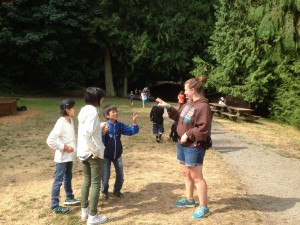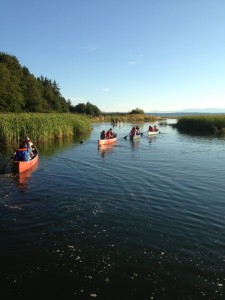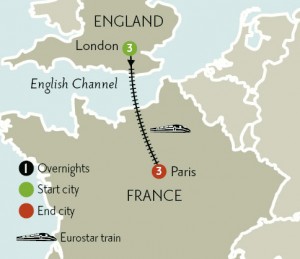blogging expectations Language learning materials online resources personal self-study
by sendaiben
2 comments
The daily practice
A short comment today. The concept behind this Bill Gates quote “most people overestimate what they can do in one year and underestimate what they can do in ten years” has been on my mind recently.
I’ve also seen it in my students’ and in my own life.
As one example, I recently started studying kanji again (you’d think I’d have this by now, after thirteen years in Japan) and have resolved to use Anki for 10-30 minutes in the morning each day before doing anything else. I have mostly kept on top of this and now after a couple of months I have done over six hours of focused kanji study*.
Doesn’t sound like much, but I am noticing the effects when reading and more importantly writing in Japanese.
The point is that seemingly insignificant daily habits can have a huge payoff. What are your daily habits?
*I’m using the Core 2000 and 6000 and JALUP RTK decks to study from.
business curriculum eikaiwa ES expectations JHS junior high school kids language courses Language learning overseas study trips school management summer camp young learners
by sendaiben
2 comments
Taking students to summer camp in the US
This is a guest post (the first on this blog!) by a friend of mine, Ryan Hagglund. He has an extremely promising variation on the usual study abroad trip that I thought you would find interesting. Enjoy and let us know what you think in the comments.
After many years of thinking about it, we finally took students from our school (MY English School in Yamagata) to the US for the first time this summer. Thanks to all the advice and stories I read and heard from others, the trip was overall a success and will hopefully serve as a building block for many more to come.
My impression is that most international trips English schools organize involve some form of formal study. While there is obviously nothing wrong with studying—we ARE a language school—it seems like there’s plenty of time for the students to study while in Japan. The main purpose for us in going was to give the students something they couldn’t receive here: the opportunity to interact with large numbers of English-speaking children of their own age. We wanted to give them an experience that would lead to greater motivation and increased interaction skills, among other things. The instrument we chose to accomplish this was to have the children attend a summer camp intended for children who are native speakers of English, not English learners.
We chose Warm Beach Camp in Stanwood, Washington. We chose Warm Beach for several reasons. First, it is the camp I attended when an elementary and JHS student, so I was familiar with the facilities. Having attended almost 30 years ago, however, I no longer had connections to any of the staff. Second, it is a large facility that not only has many activities for campers to do, but was also able to house our staff away from our students but still onsite. Third, it gave considerable value for the price. Camp was only US $399 per student for six days and five nights—including meals—and they supplied free room and board for our staff in a separate onsite facility. They also provided free sleeping bags and pillows to our students. (Warm Beach is a Christian camp facility, but we were careful to make sure our students and their parents were aware of this. There are most likely secular camps with similar facilities and value.)
We took five students—two boys and three girls—ages 9-13 (Japanese elementary 4th grade to JHS 2nd year). There were approximately 80 campers all together ages 9-11 (US 4th to 6th grade) divided into cabins of six or seven students each. Our 13-year-old student had no problems relating to the younger campers, though JHS 1st year would probably be a good cutoff. Since none of the US campers nor counselors spoke Japanese, the students had to navigate in English. What was nice, however, were the many activities the children were able to participate in, allowing them to interact in English without consciously having to overly focus on the language itself. Some of the activities they participated in were: field games, swimming, archery, horseback riding, canoeing, wall climbing, BB-gun shooting, mini-golf, and a bonfire. While it was challenging for them at first, by the end of the trip four of the five students said they would like to stay longer. The fifth (12 years old) said she was glad to have come, but just ready to go home. We were only with the students for a daily meeting each evening, when pre-activity safety instructions in Japanese were necessary, and when a student became homesick and needed a little extra support. We had a pre-paid US cell phone so the camp and/or counselors could reach us at any time if necessary. They only called us once.
While the camp was our focus, we did do other activities as well. Our schedule was as follows:
Saturday Aug 3 – Arrive in Seattle and tour the city
Sunday Aug 4 – Visit Wild Waves Theme Park
Monday Aug 5 – Saturday Aug 10 – Attend camp and Seattle Mariners baseball game (Aug 10)
Sunday Aug 11 – Return to Japan
We will probably add an additional day of Seattle sightseeing if we go again next year.
Camp positives:
1) No need to be concerned about the quality of homestay families.
2) No need to worry about logistics for most of the trip. While at the camp, we were able to focus entirely on the students’ linguistic and emotional needs, while enjoying ourselves for most of the time. The camp took care of the rest.
3) No need to think of specific language activities, as the situation itself required meaningful English interaction from our students.
4) The camp wanted the trip to be successful as much as we did.
5) No need to pay a third party for special arrangements.
6) Students needed very little spending money. Each student brought 20,000 yen in spending money, but none of them came close to using it all.
7) Since almost everything was included in the camp price, there were fewer opportunities for financial surprises.
8) 24-hour onsite certified nurse, removing the need for us to worry about student sickness and/or injury.
Camp possible negatives:
1) We did have to plan the logistics outside of camp time. This included airline booking, three nights of hotel, sightseeing in Seattle, and transportation to and from the camp. While not difficult, might be hard to leave to a school teacher or staff member not familiar with the Seattle area.
2) Not as appropriate for students who would prefer a “travel experience” versus an “immersion experience”.
All in all, it was a very successful trip—especially for a first time. We are already working to produce marketing materials for a similar trip next year.
Ryan Hagglund is President and CEO of MY English School in Yamagata Prefecture. He has lived in Japan for 15 years and originally hails from the Pacific Northwest. He is married to Maki Hagglund and has three children: Aiden (8), Ian (6), and Sean (4).
Admin blogging google online resources video websites
by sendaiben
leave a comment
Google Currents
Do you remember when Google shut down their RSS application Reader earlier in the year? I was quite upset at the time, but have since started using Digg Reader and have come to forgive them in my heart.
Google has something called Google Currents that appears to have been around for a couple of years now. I think I have it on my Nexus 7, but I never really knew what it was until my friend Parin wrote about it on Facebook just now.
To cut a long story short, you can now subscribe to this blog on Google Currents, by following this link. Or for even more personal service, sign up for email delivery in the box at the top right of this page.
If you want to know more, including how to set up Google Currents to publish your content from WordPress, the video below is very clear.
What’s missing in education?
I got up before 5am today (summer here is rough on sleep) and started thinking about formal education and how it fails to educate people in the most important ways. There are three really important areas I feel formal schooling lets people down.
All of them are things that took me until my mid-30s to figure out, and I have had one of the best educations available -private school, famous university, and post-graduate study. I don’t remember any of these being addressed at any of my educational institutions, yet they are probably the most important things in terms of having a happy and productive life.
HEALTH
The importance of exercise, how to include exercise into your life, the benefits of lifting weights or doing bodyweight training, basic nutritional information, healthy and unhealthy diets, how to watch out for sugar (poison, basically), dangers of processed carbohydrates, benefits of protein and fats.
Being healthy through a combination of physical exercise and a balanced diet is the foundation to a happy life. It should be a core part of compulsory and continued education.
MONEY
How to budget, the power of interest (both on debt and savings), different investing options, the pros and cons of home ownership, how to use credit responsibly, how to build up savings and passive income, deferring purchases, how to think about money.
Being financially secure through an ’emergency fund’ of cash savings and having an income-producing portfolio of investments accumulated by saving every month won’t make you happy -but it will ensure that money problems do not make you unhappy.
GOAL-SETTING
Identifying things you want to achieve, breaking them down into manageable goals, doing self-directed research, and working consistently until completion are incredibly valuable skills.
We live in an age of increasing and decreasing opportunity. It is probably easier now than ever before for people to start small side businesses and have a shot at creating value for others and an income for themselves. At the same time, traditional employment where you get money in exchange for doing what you are told is shrinking alarmingly. All over the world young people are finding it harder and harder to find jobs that pay well and provide security.
An entrepreneurial mindset and the ability to set up and deal with your own projects is one way to provide employment security. Unlike in the past, setting up a side business in the age of the internet has minimal costs and little financial risk.
Conclusion
Now, I don’t think schools can magically teach these things to every student, thus leading to a utopian future where we are all healthy, financially responsible, productive members of society 🙂
However, I believe that giving every young person a solid grounding in the three areas above would at least give them a chance to build upon them later in life. At least when I went through school and university these things weren’t even touched upon.
My top recommendations for further reading: Mark Sisson (Mark’s Daily Apple) for health, Andrew Hallam (the Millionaire Teacher) for wealth, and Sebastian Marshall for productivity.
business eikaiwa expectations high school junior high school school management study trips young learners
by sendaiben
17 comments
Taking Students to Europe (2013)
After the (semi-)successful study trip to Australia’s Gold Coast in 2012, we decided we wanted to do something similar this year.
In Australia, the best things we did were as a group, and the worst part of the trip were the host families, so this time we tried to put together a kind of eye-opening cultural tour, with a week in London and three days in Paris.
The students were interested but their parents weren’t. “Sounds like you’re just going on a trip”, they said, and weren’t open to the argument that it was the kind of trip that most kids in Japan never have the chance to make.
We quickly rethought our plans and changed the trip to incorporate a week’s homestay/English classes in London with three days in Paris. Seven students signed up, fewer than the ten we had set as a minimum. I wanted to cancel, but the school manager decided to press ahead as a learning experience.
We went with a company in the UK recommended by a friend of mine. Big mistake.
The problems
1. The school we partnered with for this trip was disorganized and unprofessional. The frequently forgot things, failed to deliver on previously agreed conditions, and three days before the trip emailed me saying “we couldn’t find the last homestay family for you, so let’s just refund your money and call it quits”. Our office manager physically collapsed when I relayed that message. I was able to broker a solution eventually, but it was incredibly stressful. After we arrived, instead of providing staff to guide us on field trips as agreed, they dropped us off at various places leaving the teacher accompanying the students to try to salvage things and provide tours and activities on the spot. Classrooms were booked at the wrong time, activities were booked on the wrong day. Scheduled activities had to be changed because they were not available on Sundays, and so on. Instead of providing classes for each level of student (we had three different levels of ability) they just provided two. None of this was said in advance, it just happened and we decided to just get through the experience without upsetting the students rather than argue.
2. Organizing everything ourselves meant dealing with airlines, hotels, transport companies, schools, museums, restaurants, etc. Once we were in country, the sole teacher on the trip had an excessive amount of responsibilities and stress. For example, on the last day we had a guided tour of Versailles including pickup from the hotel and drop off at the airport, but until the minibus actually turned up we couldn’t be sure it would happen so had to have a plan B in place. Everything turned out okay in the end (I don’t think the students noticed the problems) but it was a bit too intense.
3. Due to a last-minute venue change (from London to Cornwall!) we ended up needing to take two long (6-hour) journeys by minibus. This was a bit of a waste of time. I found out later that we could have toured London first, then made our way to Cornwall, then flown from there to Paris, which would have been a lot better.
4. There were a large number of unanticipated supplementary expenses, from meals to transport to laundry, and as the organizers we felt responsible for these.
The benefits
1. We actually had nice homestay families this time (which is 90% of the battle). Also, Cornwall is a great place and the students enjoyed getting to know it.
2. Touring London for one day and Paris for three was fantastic. The students were blown away by the buildings, the museums, and the ice cream 🙂
3. Despite the unanticipated expenses above, and not having enough students, the trip was slightly profitable.
Things we learned
1. Partnering with good people/organizations is essential. Trying to pick up the pieces after someone else drops things is exhausting and stressful, as is making contingency plans on the fly. We will be much more careful in the future.
2. It’s vital to balance activities and downtime for the students. Making sure they have some time to relax and time to themselves each day is really important. I feel we managed this well on this trip.
3. It’s preferable to take two teachers. We were able to have a former teacher join the group in London and Paris, and it made a huge difference. Having two teachers spreads the worry, allows each teacher to have a little time off, and provides a backup in case of accidents. It’s also great to have one teacher wait with the group while the other buys tickets, etc.
Overall
This was a good trip overall. Students that went on both (the former Australia trip and this one) said this time was more fun and interesting. We did a lot, and I have almost 1000 photos to prove it.
However, it was far too stressful and could have gone wrong. For future trips we will need to do more preparation and research.
We’re thinking of going to Canada or Singapore next year. Anyone know any good schools? 😉






